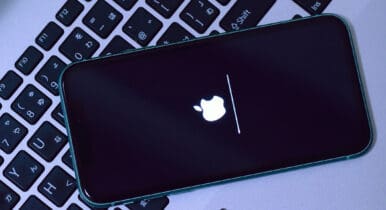Supreme Court Decides In Favor of Callers In Facebook Ruling, But Practitioners Remain Wary of Carriers
The U.S. Supreme Court ruled unanimously that only devices with the capacity to store or dial using a random or sequential number generator are covered by the Telephone Consumer Protection Act (TCPA). In this article, experts weigh in on what the ruling means for political callers and where peer-to-peer text vendors and campaigns should still be careful.
Texting practitioners who had been anticipating a ruling in the Facebook v. Duguid case for months may have to wait a little longer to find out exactly what the Supreme Court’s decision means for their businesses.
In a 9-0 decision released Thursday, the court “adopted a narrow interpretation of the statute,” according to Eric J. Troutman, a TCPA expert and partner at Squire Patton Boggs, who noted that was a “huge win for callers.”
“The Supreme Court decided 9-0 … that the TCPA means what it says. Only devices that have the capacity to store or dial actually using a random or sequential number generator are covered by the statute. Period,” Troutman wrote on his blog. “This means you can (probably) now use automated technology to call cell phones without consent.”
While adding a note of caution to practitioners, he also explained that the ruling wasn’t perfect.
“A perfect ruling would have been one in which the court also clarified that the system must actually make USE of the random or sequential number generator functionality in making challenged calls to trigger the TCPA. … [Don’t get] too carried away by the good news today. As noted, there is still a dangling thread here to be cautious of.”
Practitioners C&E spoke with were indeed cautious about what the ruling means for their shops and clients.
After speaking with an FCC subject matter expert, Movement Labs CEO Yoni Landau told C&E: “It sounds like they won’t issue a ruling clarifying in the next day or so, so we may have a few weeks of true confusion.”
Landau said the ruling appears to make “broadcast and P2P [texting] equivalent and gives all the power to the carriers to prevent spam — though it’s not clear whether the carriers indeed have that power, or whether they are required to send our texts.”
“Either way, it’s time for the progressive community that has made excellent use of P2P text to get organized and ensure that P2P text stays elevated,” he said. “A volunteer’s 1-1 communication with voters should be protected beyond mass commercial communications.”
Landau is helping lead an ongoing effort by practitioners on the left to lobby the carriers against spam filtering certain messages to voters. But they have reason to be wary of more than just the carriers, according to attorneys David Carter and Artin Betpera, of firm Womble Bond Dickinson.
“[O]ur perception is that the Supreme Court’s decision may well prompt further legislative reforms that could limit the longevity of the Supreme Court’s decision,” the lawyers wrote Thursday.
In the Thursday ruling, the justices were parsing whether the TCPA, which is vaguely written and out of sync with current technology, only applies to pre-recorded calls and random-fire calls, or if it applies to all automated calls — including calls from smartphones.
The case involved text messages from Facebook to Noah Duguid, who back in 2014 started receiving messages from the company about fraudulent activity on his account even though he hadn’t set one up. Facebook said it had the authority to text him through an autodialer because the phone numbers targeted were specific and not non-sequential or random.
Finding in favor of Facebook, Justice Sotomayor wrote in the opinion: “Congress’ definition of an autodialer requires that in all cases, whether storing or producing numbers to be called, the equipment in question must use a random or sequential number generator. This definition excludes equipment like Facebook’s login notification system, which does not use such technology. … Expanding the definition of an autodialer to encompass any equipment that merely stores and dials telephone numbers would take a chainsaw to these nuanced problems when Congress meant to use a scalpel.”
Moreover, the justices dismissed Duguid’s side’s warning “that accepting Facebook’s interpretation will ‘unleash’ a ‘torrent of robocalls.’”
They concluded: “Duguid greatly overstates the effects of accepting Facebook’s interpretation.”
Meanwhile on Thursday, attorneys sought to educate phones vendors about the ruling’s impact on their businesses. The Beltway firm Holtzman Vogel Josefiak Torchinsky PLLC sent an email noting “this decision has no impact on calls using an artificial or prerecorded voice. These so called ‘robocalls’ are not impacted by this decision and still remain a TCPA violation unless certain exceptions are met.”

